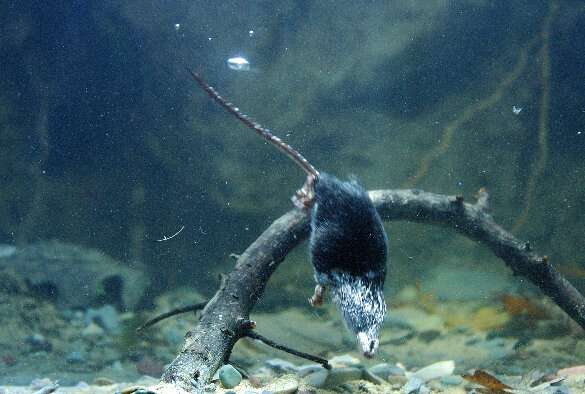SPLASH! Take the plunge — and meet the world’s best divers!
This is Sandra Tsing Loh with the Loh Down on Science.
Who are the smallest mammal scuba-divers in the world? WATER SHREWS! They live on shore, waiting to pounce on tasty insects underwater. While hunting, they can hold their breath for around – wait for it – twenty seconds!
What gives these critters their edge in Olympic diving? Kai He, from the University of Manitoba, Canada, and his international team investigated.
The team collected myoglobin from fifty-five species of insect-eating mammals, including shrews and moles. Myoglobin is a muscle protein that binds with oxygen and delivers it across the body. The more oxygen delivery you have, the longer you can hold your breath!
The team compared differences in this protein among the insect eaters.
What did they find? The myoglobin in water shrews has evolved to be LESS STICKY. The muscley carriers don’t clump together, clearing the delivery path. With more oxygen available, these divers can stay down longer!
Going for the gold in diving? Don’t hold your breath!
Reference: He, K., Eastman, T. G., Czolacz, H., Li, S., Shinohara, A., Kawada, S. I., Springer, M. S., Berenbrink, M., & Campbell, K. L. (2021). Myoglobin primary structure reveals multiple convergent transitions to semi-aquatic life in the world’s smallest mammalian divers. ELife, 10. https://doi.org/10.7554/elife.66797
Photo Credit: ROBERT A. MACARTHUR/KEVIN L. CAMPBELL

